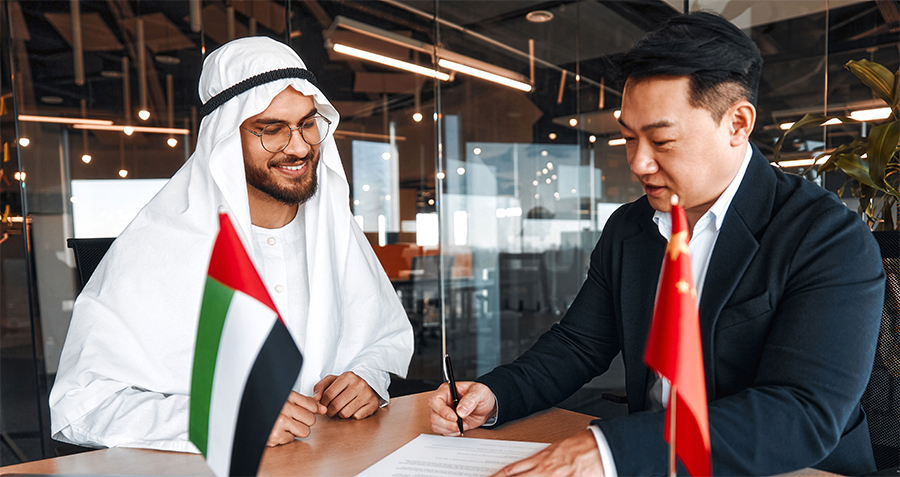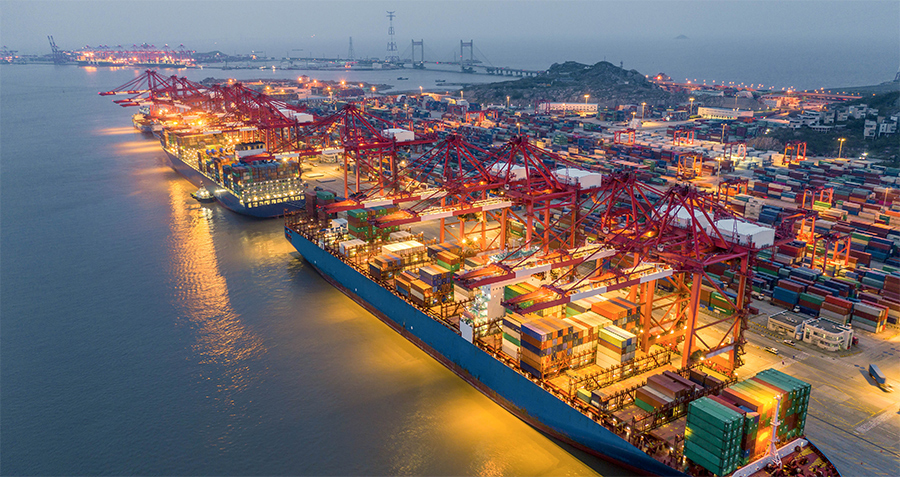A conversation with Gita Wirjawan, Indonesia’s Former Minister of Trade
As Indonesia will likely ratify its membership of the Regional Comprehensive Economic Partnership (RCEP) in 2022, we spoke with Gita Wirjawan, former Minister of Trade of Indonesia, to explore the opportunities and challenges this agreement will bring for member countries.
Wirjawan is a well-respected government official, presidential candidate and business veteran in Indonesia. He led the enactment of the Trade Law in Indonesia and achieved the only major trade deal that has been agreed since the formation of the WTO. He also held key positions in Goldman Sachs and JPMorgan, and founded Ancora Group, a Jakarta-based private equity fund. He discusses how RCEP will benefit Indonesia, where the growth areas will lie and what the agreement will mean for the wider Asia Pacific region.

How important is RCEP, particularly for countries that aren’t in it? Is this the architecture of the ‘Asian Century’ or is it another trade deal?
I think it’s important on the basis of a couple of accounts. I was a trade minister until some years ago. It’s been a while but I’m proud to have been part of the initiation of this [agreement] in 2011. The first account would have been the realism with which a multilateral framework should be undertaken with respect to quite a number of developing economies in Southeast Asia. I think we say this with full recognition of the fact that there are countries with much higher GDP per capita capabilities and much lower GDP per capita capabilities. The second is the incrementalism with which the framing of this was being done.
I was part of a small group that was not very sure about the potential implementation of the TPP framework, which is now called the CPTPP. I basically contrasted the two frameworks in the sense that TPP would have been a 22nd century frame[work], as opposed to RCEP being a 19th, if not 18th century frame[work]. And from a geopolitical, social and cultural standpoint, I think it’s a lot easier to roll things forward, as opposed to trying to think and rolling things backward with the risk of stumbling. That is the metaphor that I try to share with some of my friends in the more developed economies who were trying to push Indonesia into the TPP framework. I would say those two accounts would have made the RCEP framework very important for a lot of people in Indonesia.
How important is China’s participation in RCEP from the Southeast Asian point of view?
I think China is inevitably a very crucial part of this framework, as much as we have, we still do, and we will believe in the centrality of Asia or Southeast Asia. Without China, I think this would still be a very good framework. But with China, I think this is a much better framework. But I think there is a risk of this being perceived as a China-led initiative, as opposed to an ASEAN-led initiative. I think this would have been perceived or desired as an ASEAN-led type of initiative.
What does RCEP mean for Indonesia? Do you think it is a big opportunity for Indonesia?
I think people are seduced too much into the trade part of the equation, but I think we need to be more cognizant of the investment part of the equation, which I think is very important for countries like Indonesia.
If we take a look at the FDI on a per capita per year basis for Indonesia, Thailand or the Philippines, it stands at about $100 as compared to that for Singapore at $19,000. When somebody wants to talk about potential relocation of value chain capabilities from China to any part of Southeast Asia, it’s a no-brainer in terms of where you want to relocate. You want to relocate to the destination with higher, if not the highest, marginal productivity, and higher, if not highest, efficiency that could be offered to any potential investor inclusive of China.
So I think that point of FDI which stands at a very low level for countries like the Philippines, Thailand, or Indonesia, needs to be addressed in the conversations not just within RCEP, but beyond RCEP.
If I’m writing a history of the 21st century, will there be a big chapter on RCEP? Or will it be a couple of paragraphs? How will it feature in the history of the Asian Century?
It deserves at least a paragraph in the sense that we have seen the death of multilateralism in the last decade. And this is, I hypothesize here, attributable to how conversations are polarized in many countries, developed, developing, and underdeveloped. And I think the polarization of conversation has entailed a little bit too much nationalism, which tends to make multilateralism somewhat more difficult than ever.
So we are going through this episode, if not cycle, of a lack of multilateralism, but the fact that the member countries of RCEP have decided to move ahead with this and show to the world that this is a good piece of multilateral understanding is equity for humanity’s ability to re-multilateralize in a much bigger way.
RCEP is really significant when it comes to manufacturing and supply chain, but it doesn’t really touch on issues that businesses care, such as cross border data flows, data localization, customs, and electronic transmissions. What should we do to address 21st century trade issues?
For the average Laotians, Cambodians, and Indonesians, what matters more is to be able to create jobs, by way of the building of a factory, the typical brick-and-mortar, before we start talking about data privacy, or whether or not we want to embrace GDPR, intellectual property, human rights, and all that good stuff. Eventually, we’ve got to embrace the kind of framework that is symbolic if not representative of the twenty second century. But I think we have to recognize the lack of symmetry of welfare on a per capita basis in Southeast Asia. But I do believe that RCEP is a really good starting point for ten nation states in Southeast Asia before we embark upon something that has a little bit more sophistication. I think inevitably we’re going to get there. I can’t give you an answer on timing.
How do you think the ASEAN-China free trade area has affected the Indonesian economy, particularly its industry? Do you expect any opposition or concerns about the ratification of RCEP? Are you worried about the influx of China’s manufacturing products?
I think we tend to lose sight of the importance of the long term. I’m a lot less worried about the deficit created by way of the influx of goods and services from China [being] more than what we can export to China. I would be a lot more concerned about whether or not we are doing what we have to do in terms of getting more money into Indonesia, so that we can actually ramp up our educational narratives so that we can actually start building the things that we need to be building to help Indonesia move up the value chain. Those, I think, are the things that are a lot more important in long term.
I do believe that the ratification of RCEP will take place [in Indonesia]. It is a process-related issue, and it’s more a matter of time. Indonesia stands at a marginal productivity of only $24,000 on a per capital per year basis compared to the Singapore. I think of Singapore as the LeBron James, when it comes to FDI, when it comes to productivity. They stand at about $170,000 on a per capita per year basis for marginal productivity. We’ve got to use the Singapore example as an inspiration.
To watch the full recording of the event at which we talked with Gita Wirjawan, please click here.




















